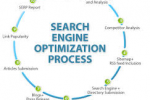The recent news that Lenovo has signed a multi-year agreement to supply laptops and tablets to the NFL will have surprised few industry observers. Lenovo is now recognized as the technology sponsor of the NFL. Nonetheless, it was a bold move that demonstrated the growing power of the Chinese computer manufacturer (which, according to analysts, will displace HP to become the world’s top PC maker this year). This agreement was launched with a Lenovo NFL contest that gave the winner access to a full NFL calendar, including game tickets for an entire season, spring training and draft attendance.
So, why is such a move attractive to a tech company like Lenovo? Well, for one, it’s likely to help it break into the US market, at least if the results of a Turnkey Intelligence/SportsBusiness Journal survey are to be believed. The survey, which was conducted following the 2012 Super Bowl, found that 43 percent of fans agreed that it was important to be aware of the sponsors of the NFL. Of this group, more than one third of respondents indicated that they were more likely to recommend or purchase a product from a company that was an official sponsor of the NFL.
For tech companies seeking to target new audiences, such sponsorships are vital, and this is the reason we have seen a wave of such sponsorships recently, from Sprint’s long-term association with the NBA to the MLB’s recent agreement with T-Mobile. A similar focus is evident in the EPL, with Chelsea FC having signed a shirt sponsorship deal with Samsung that is reportedly worth 18 million GBP (about $27 million) a season.
Such deals are ideal for tech firms as, in addition to a high level of visibility and access to an audience that has not traditionally been associated with tech products, they can also take advantage of the positive associations that fans have with sports teams and organizations, as indicated by the survey results discussed above. Moreover, partnerships with teams and leagues also give companies access to wide-ranging mailing lists, allowing them to conduct targeted email marketing campaigns that, again, are focused on an audience that may not otherwise be able to be reached.
With tech products becoming increasingly embedded in almost every aspect of consumers’ lives, it seems likely that this trend for partnerships between sports teams/leagues and tech companies will only increase in the coming years, principally because it offers key benefits for both parties – the team or league appears forward thinking and technologically aware and the tech company gains high visibility, positive brand perception and access to a new target audience.























